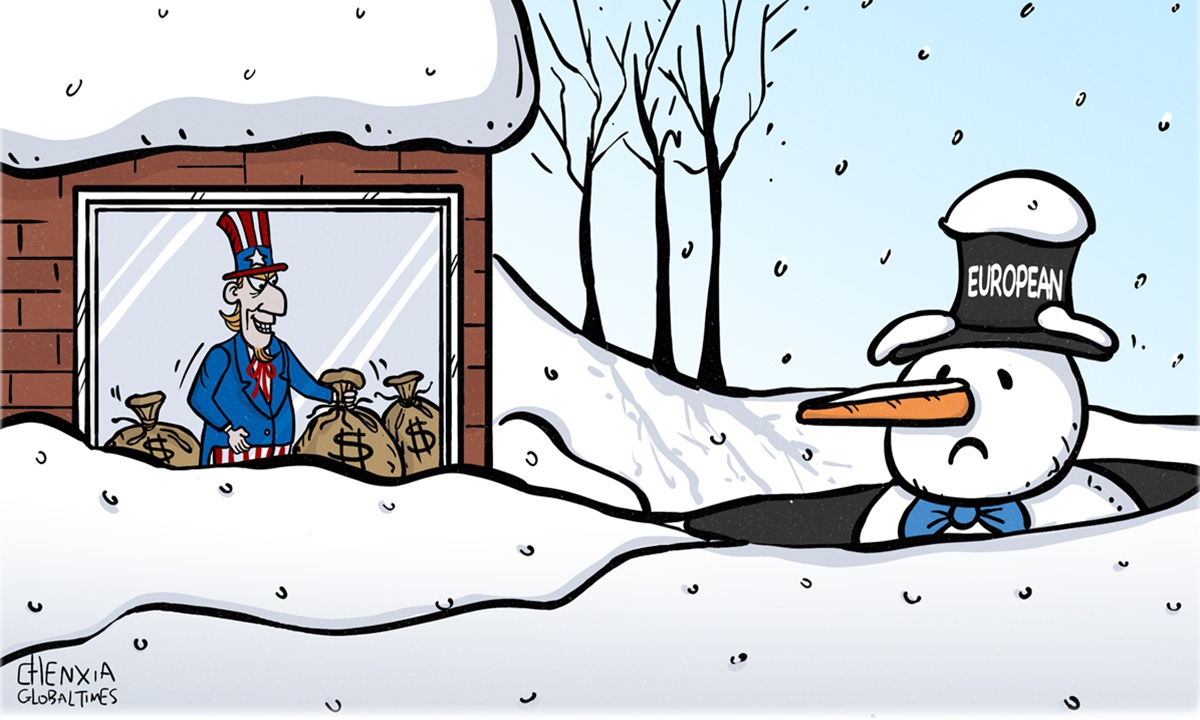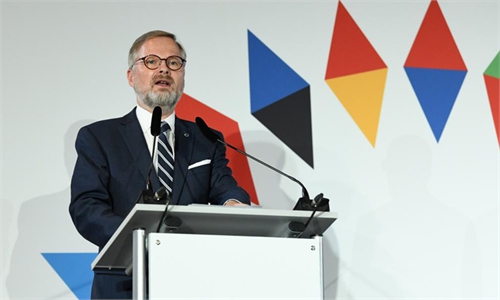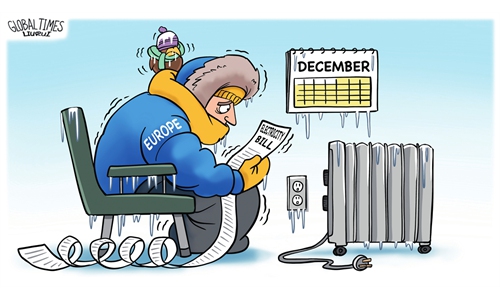
Illustration: Chen Xia/GT
With winter approaching, the question of how to curb Europe's soaring energy costs and set a price cap on gas imports to the region has been under the spotlight during a recent informal summit of EU leaders in Prague, an indication of the widening rift in terms of global gas prices between the US and the EU.German Chancellor Olaf Scholz proposed a plan on the sidelines of the informal summit to lower natural gas prices by forming a buyers' alliance with Asian countries including Japan and South Korea, Politico reported on Friday. The German proposal comes amidst growing calls for imposing a gas price cap among EU member states plagued by the high-priced LNG imports from the US and others.
Against the backdrop of Europe's worsening energy crisis, the conflict of interests between the US and the EU has not only tested their relationship, but also pointed to a sign of the waning and shaky power of the US global hegemony.
While the Biden administration may want to use the Russia-Ukraine conflict to strengthen and expand its network of allies, an insurmountable obstacle is the huge divergence of interests between them over LNG. Due to the West's sanctions against Russia, the EU has no choice but to import large amounts of LNG from the US, while American energy giants are reaping huge profits from Europe's energy crisis. And it is inconceivable for American businesses to give up this kind of once-in-a-lifetime opportunity.
As a result, the EU's annoyance with the US profiting from its difficulties is growing. Last week, French President Emmanuel Macron said European nations should join with Asian economies to demand that the US and Norway show greater friendship by selling gas at lower prices, while Germany's economy minister accused the US and other "friendly" gas supplier states of astronomical prices for their supplies, according to media reports.
Fundamentally speaking, European countries' dissatisfaction with soaring LNG prices from the US lays bare the fact that the US interests are in conflict with the interests of many other countries around the world. Though mostly at the expense of the interests of other countries, these conflicts actually reflect the decline of the US hegemony, reminding that it is no longer the time where they call the shots with no pushback.
For instance, the US government on Friday published a sweeping set of export control rules, including a measure to cut China off from certain semiconductor chips made anywhere in the world with US equipment. By extending restrictions to non-US companies, the US is actually asking others to succumb to its strategic interests by sacrificing their own economic interests in terms of trade with China and industrial chain development.
But what the Biden administration has failed to realize is that they no longer have the command power over global industrial chains and supply chains because their strategic goals are at odds with the interests of global development. This also explains why the OPEC+ organization announced the decision to cut oil output last week despite stiff US opposition. It is no one but America's own decision to abuse its dollar hegemony, bringing down the tech iron curtain, and reaping profits from allies' crisis that sowed the seeds of a loss of global prestige.
The Russia-Ukraine conflict and the Western sanctions against Russia have led to many problems, involving many conflicts of interests, not only between the US and the EU, but also between the US and other countries. A prominent manifestation of such conflicts is the damage on the interests of other countries. As more and more countries recognize the need to stand up to the conflicts of interests and defend their own interests, it may become an important sign of America's weakening hegemony.



